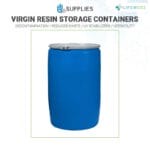What are Reusable Face Mask Filters?
Reusable face mask filters are specialized filtration components designed to be inserted into reusable face masks to provide additional protection against airborne particles, dust, pollutants, and pathogens. These filters are replaceable and typically made from materials such as activated carbon, HEPA (high-efficiency particulate air), or multi-layer synthetic fibers. The primary function of reusable face mask filters is to capture harmful particles, preventing them from entering the respiratory system, while allowing the user to breathe comfortably.
Reusable face mask filters are commonly used in industries like healthcare, construction, manufacturing, and chemical processing, where workers are exposed to airborne hazards. They offer a more sustainable alternative to disposable masks by allowing the mask itself to be reused, with only the filter requiring regular replacement.
Importance of Reusable Face Mask Filters in the Enterprise Environment
In industries where air quality and respiratory protection are critical, reusable face mask filters play a vital role in ensuring worker safety. These filters are essential for protecting workers from inhaling harmful particles, such as dust, chemical fumes, or pathogens, which could lead to respiratory illnesses or long-term health complications. By incorporating replaceable filters into reusable masks, enterprises can ensure that workers have access to ongoing protection while reducing waste from single-use masks.
Reusable face mask filters are especially important in healthcare and emergency response settings, where protection against infectious diseases is paramount. By using high-efficiency filters, these industries can prevent the transmission of airborne pathogens like viruses and bacteria, safeguarding both workers and the public.
For enterprises, providing reusable face mask filters is also essential for complying with regulatory standards set by agencies like OSHA (Occupational Safety and Health Administration) and NIOSH (National Institute for Occupational Safety and Health). Proper respiratory protection is mandated in environments where workers face exposure to hazardous materials, and failure to comply can result in fines, legal liabilities, and worker injuries.
Types of Reusable Face Mask Filters
1. Activated Carbon Filters
- Purpose: Absorbs harmful gases and vapors.
- Common Uses: Ideal for chemical processing and construction industries.
2. HEPA Filters
- Purpose: Captures 99.97% of particles as small as 0.3 microns.
- Common Uses: Suitable for healthcare, laboratories, and environments with airborne pathogens.
3. PM2.5 Filters
- Purpose: Protects against fine particulate matter, including pollutants and allergens.
- Common Uses: Commonly used in manufacturing and urban air quality settings.
Managing Reusable Face Mask Filters with Enterprise Software
Enterprise software solutions can streamline the management of reusable face mask filters by automating inventory tracking, replacement scheduling, and compliance monitoring. Key features include:
- Filter Replacement Alerts: Automate reminders when filters need to be replaced to maintain optimal protection.
- Inventory Management: Track the availability of replacement filters and ensure they are stocked in sufficient quantities.
- Compliance Monitoring: Ensure that filters meet safety standards set by OSHA and NIOSH.
Conclusion
Reusable face mask filters are a crucial component of respiratory protection in industries where workers face airborne hazards. By ensuring regular filter replacement and proper management, enterprises can maintain worker safety, meet regulatory requirements, and reduce environmental waste. Managing reusable face mask filters with enterprise software helps optimize inventory, ensure compliance, and improve overall workplace safety.
« Back to Glossary Index

















